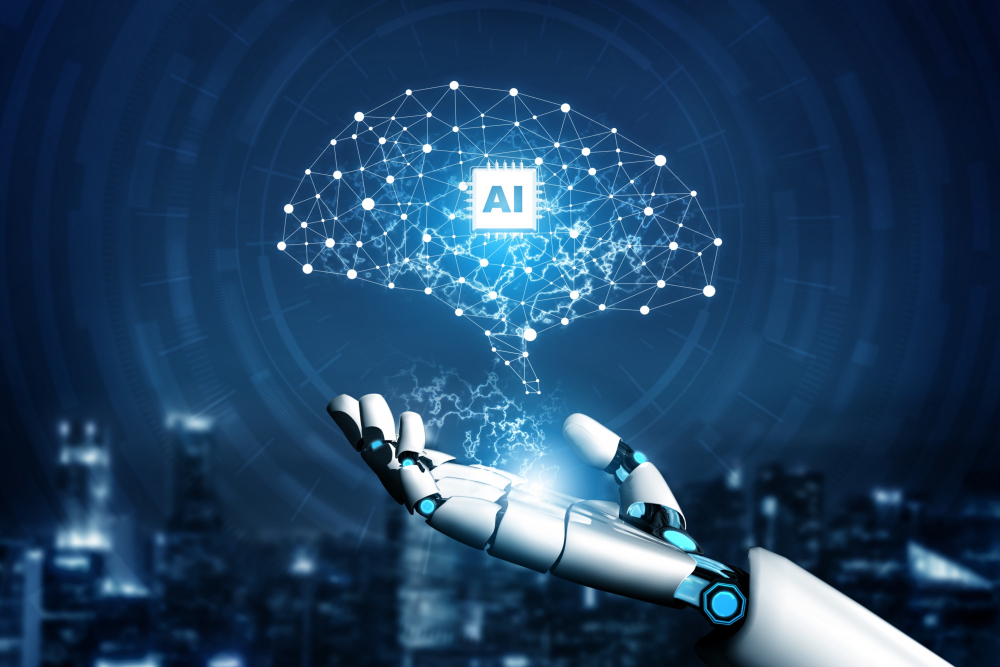For several years, the retail industry has been undergoing a digital transformation that has significantly enhanced speed, efficiency, and precision across all aspects of retail operations. This remarkable progress can be attributed mainly to the utilization of advanced data analytics and predictive systems, which enable companies to make well-informed, data-driven decisions.
Central to the generation of these invaluable insights is the integration of the Internet of Things (IoT) and, more notably, artificial intelligence (AI). The presence of AI within the retail sector has bestowed businesses with sophisticated data and insights, which are then harnessed to refine retail processes and uncover novel business prospects. Remarkably, over a span of three years, it is estimated that AI in the retail domain has spurred an additional $40 billion in revenue.
Retailers striving to uphold their competitive edge need not look further than AI in the retail sector. Projections suggest that a significant 85% of enterprises will have integrated AI into their operations and those who neglect this integration risk relinquishing substantial market share to their competitors.
Technologies and Solutions used for AI Implementation in Retail
The concept of artificial intelligence (AI) is widely discussed across various industries, yet its precise implications often remain unclear. In the context of retail, AI encompasses a spectrum of technologies, including machine learning and predictive analytics. These technologies are adept at gathering, processing, and analyzing vast volumes of data, ultimately enabling retailers to make well-informed, data-driven business decisions.
Moreover, these technological advancements can even operate autonomously, leveraging advanced AI analytical capabilities to translate raw data sourced from the Internet of Things (IoT) and other channels into actionable insights. Within the retail sector, AI also leverages behavioural analytics and customer intelligence to extract valuable insights about distinct market demographics. These insights, in turn, play a pivotal role in enhancing various aspects of customer service within the realm of business.
Transforming Retail Dynamics: AI’s Role in Crafting Personalized Shopping Ventures
Within today’s dynamic retail landscape, a new era has dawned, characterized by data-driven shopping experiences and heightened consumer expectations. Yet, the formidable task of providing personalized shopping odysseys on a substantial scale, ones that remain pertinent and invaluable, presents a significant challenge for retailers. As digital and physical purchasing avenues seamlessly intertwine, those retailers adept at revitalizing their retail strategies through innovation will inherently establish themselves as vanguards within the competitive mar
Indeed, here’s a rephrased version of the examples you provided, maintaining the same structure:
AI’s Transformation of the Retail Industry:
1. Inventory Management:
AI is revolutionizing inventory management by leveraging insights from marketplace, consumer, and competitor data. This informs proactive changes in marketing, merchandising, and business strategies. Supply chain planning, pricing, and promotional planning are also impacted.
2. Adaptive Homepage:
Digital platforms are adopting AI to personalize the e-retail experience based on customers’ context, previous purchases, and shopping behavior. AI systems continuously evolve to create hyper-relevant displays for each interaction.
3. Dynamic Outreach:
Advanced CRM and marketing systems utilize AI to learn consumer behaviors and preferences, forming detailed shopper profiles. This information fuels personalized outbound marketing, delivering tailored recommendations, rewards, and content.
4. Interactive Chat:
AI-powered chat programs enhance customer service by engaging customers, answering queries, and guiding them to solutions. These bots gather valuable customer data for informed business decisions.
5. Visual Curation:
Algorithmic engines translate real-world browsing behaviors into digital retail opportunities, enabling customers to discover products through image-based search. Recommendations are curated based on aesthetics and similarity.
6. Guided Discovery:
Automated assistants assist customers in narrowing down product choices by recommending items based on their needs, preferences, and fit.
7. Conversational Support:
AI-backed conversational assistants use natural language processing to guide shoppers through questions and troubleshooting. When necessary, they seamlessly redirect customers to human experts, enhancing the customer experience.
8. Personalization & Customer Insights:
Intelligent retail spaces recognize customers and adapt in-store displays, pricing, and services through biometric recognition. AI and advanced algorithms understand customer interests through demographic data, social media behavior, and purchase patterns, enhancing personalized service.
9. Emotional Response:
AI interfaces recognize shoppers’ emotions and reactions through facial, biometric, and audio cues. This enables them to provide appropriate product recommendations or support in real-time.
10. Customer Engagement:
IoT-enabled technologies allow retailers to gain insights into consumer behaviour without direct interaction. For instance, Kodisoft’s interactive tablet utilizes IoT and machine learning to gather consumer data, boosting customer engagement.
11. Operational Optimization:
AI-supported logistics management systems adjust inventory, staffing, distribution, and delivery in real-time, ensuring efficient supply and fulfillment chains while meeting customer expectations.
12, Responsive R&D:
Deep learning algorithms interpret customer feedback, sentiment, and purchasing data to enhance product and service designs that cater to customer preferences and unmet market needs.
13. Demand Forecasting:
AI-powered business intelligence tools use insights from marketplace, consumer, and competitor data to forecast industry shifts, enabling proactive adjustments to marketing, merchandising, and business strategies
14. Customized Selections:
Retailers are utilizing AI to provide unique, personalized experiences for customers, leading to revenue growth of 6% to 10%, according to a study by the Boston Consulting Group. This is achieved by integrating advanced digital technologies and proprietary data.
The integration of AI into the retail industry offers a multitude of advantages beyond just enhanced business intelligence and efficiency. The ongoing digital transformation in retail is becoming the decisive factor distinguishing prosperous businesses from those struggling. There are several pivotal benefits that can be attributed to the utilization of artificial intelligence within the retail sector, and here are the five foremost ones that retailers can leverage:
1. Engage Customers Effectively:
In a landscape brimming with innovative competitors providing immersive shopping experiences, conventional retailers must establish personalized and pertinent connections with customers across all touchpoints. This uniqueness and inspiration are vital for retaining customer interest.
2. Foster Compelling Experiences:
Sustaining consumer interest necessitates retailers to not only differentiate their products but also provide enticing services and experiences. By incorporating predictive analytics to gather deeper market insights, retailers can lead through innovation rather than reactively adapting to changes.
3. Extract Insights from Diverse Data:
Amidst the deluge of information spanning supply chains, stores, and consumers, retailers need to distill this data into consumer-centric strategies. Transforming disparate data sources into actionable insights is essential.
4. Harmonize Offline and Online Retail:
The distinct operational strategies of digital and physical shopping channels can create friction for customers seeking a seamless experience. Treating these channels as cohesive entities rather than separate units minimizes operational inefficiencies.
5. Enable Agile Logistics Networks:
Retailers must reenvision their conventional supply chains to accommodate a broader spectrum of customer demands, which are evolving from mainstream to niche. This necessitates adaptive and flexible ecosystems capable of swiftly responding to shifting consumer behaviors.
In summary, the incorporation of AI in the retail sector is a pivotal driver that enables businesses to forge personalized customer connections, foster innovation, distil valuable insights from data, synchronize online and offline realms, and establish adaptable supply networks. This paradigm shift is no longer optional; it’s a critical strategy for retailers to flourish in the rapidly evolving market arena.



